| Author |
 Topic Search Topic Search  Topic Options Topic Options
|
HackettFan 
Forum Senior Member

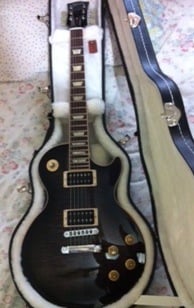
Joined: June 20 2012
Location: Oklahoma
Status: Offline
Points: 7946
|
 Topic: Storytelling or illustrative component of Prog Topic: Storytelling or illustrative component of Prog
Posted: December 24 2012 at 11:47 |
|
This is a thread I wanted to post for a long time.
Some music is more than intriguing music from a musical perspective. It tells a story. It might narrate a story with lyrics, but most importantly it illustrates a story with the meandering instrumentation and composition. What Peter Gabriel called "journey songs". Note that I'm talking about stories driven by the whole composition, not just any run of the mill ballad, although lyrics can be a part of it. With purely instrumental pieces one may not be able to identify and report on specific story events, but there's an impression of events transpiring. Jade Warrior-Floating World is an example; entirely instrumental, but if you squint just right and allow yourself to daydream... Gong had a strong storytelling capacity, especially on You. Most of old Genesis would do it as a matter of course, and I think that's a big part of why people, including me, disdain later Genesis so vehemently. It wasn't just the change in the music but the loss of the stories, the folklore. I think that's why some old Genesis fans are more gracious toward Duke, because it had Duke's Travels on it, which is a perfect example of a piece with a story being told. We don't know what the story is, but there's a story nonetheless.
Storytelling is not a part of the PA definition of Prog. Some bands are great musically, but show no interest in storytelling. I'm thinking of ELP or Soft Machine, for example. Should the illustrative capacity of music be thought of as at least an optional component of Prog? What is its general significance to Classic Prog and how does it fare in Modern Prog?
|
 |
Wafflesyrup 
Forum Groupie

Joined: December 02 2009
Location: Tx
Status: Offline
Points: 50
|
 Posted: December 24 2012 at 13:03 Posted: December 24 2012 at 13:03 |
I suppose my own perspective would be that all music inherently tells a story. Ranging from a child's book, to a novel, to a Hustler or Cosmo magazine. There's a story in there somewhere.
I do enjoy reading me a good novel moreso than anything else though, that's for sure.
|
 |
Slartibartfast 
Collaborator

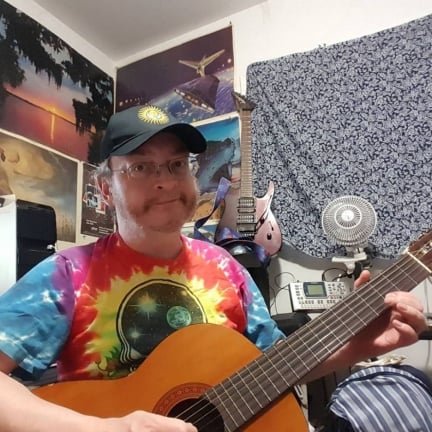
Honorary Collaborator / In Memoriam
Joined: April 29 2006
Location: Atlantais
Status: Offline
Points: 29625
|
 Posted: December 24 2012 at 13:06 Posted: December 24 2012 at 13:06 |
Don't negelect instrumentals that tell a story. Case in point are a lot of the songs (I know I know some people are going to say how instrumentals can't be songs  ) on this: What got into prog in the first place was what you refer to as the storytelling component. Of course just my luck I got heavily into prog just when that was being abandoned in favor of commercial appeal.
Edited by Slartibartfast - December 24 2012 at 13:07
|
Released date are often when it it impacted you but recorded dates are when it really happened... 
|
 |
HackettFan 
Forum Senior Member


Joined: June 20 2012
Location: Oklahoma
Status: Offline
Points: 7946
|
 Posted: December 24 2012 at 14:09 Posted: December 24 2012 at 14:09 |
|
|
 |
Polymorphia 
Forum Senior Member

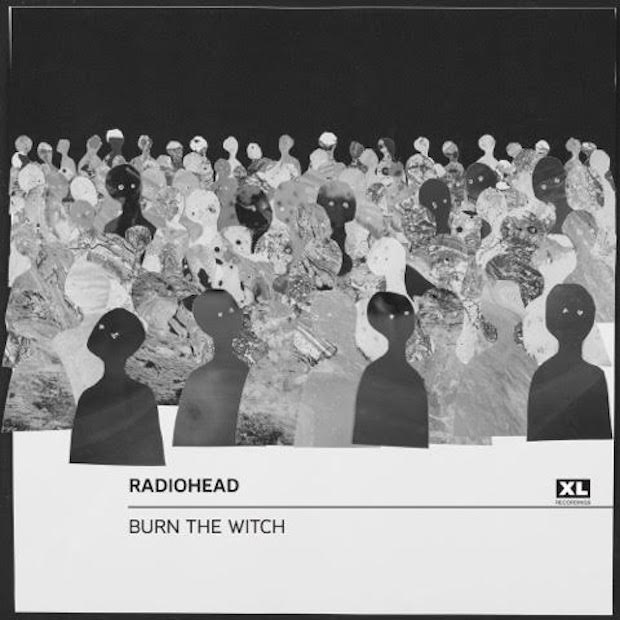
Joined: November 06 2012
Location: here
Status: Offline
Points: 8856
|
 Posted: December 24 2012 at 14:32 Posted: December 24 2012 at 14:32 |
|
Most prog is heavily influenced by the Romantic composers whose music strongly communicated a passing of time. Many prog artists combine actual storytelling with this aesthetic effect, which may cause one to associate the psychological time aspect with the folklore or image of an artist.
Take Yes as an example. "Close to the Edge" conveys a passage of time and change of setting, yet the lyrics are abstract and introspective leading the listener to conclude the song is about a big personal change. "Close to the Edge" refers to being close to a huge "self-discovery," as Jon Anderson puts it.
Or take an example of the opposite. Classical composer Olivier Messiaen wrote music that "suspended" psychological time, so to speak. His works were mainly religious and the suspension of psychological time was used to communicate eternity. Almost all of his music was this way.
|
 |
Slartibartfast 
Collaborator


Honorary Collaborator / In Memoriam
Joined: April 29 2006
Location: Atlantais
Status: Offline
Points: 29625
|
 Posted: December 24 2012 at 14:55 Posted: December 24 2012 at 14:55 |
If you want a story here are a couple of other "obscure" albums I like a lot: 
|
Released date are often when it it impacted you but recorded dates are when it really happened... 
|
 |
Ambient Hurricanes 
Forum Senior Member


Joined: December 25 2011
Location: internet
Status: Offline
Points: 2549
|
 Posted: December 24 2012 at 20:45 Posted: December 24 2012 at 20:45 |
 Wafflesyrup wrote: Wafflesyrup wrote:
I suppose my own perspective would be that all music inherently tells a story. |
I think that all music tells at least part of a story, not necessarily an entire narrative. Of course, some composers bring this element of music out more than others. One of my favorite examples has always been 2112 by Rush; the lyrics tell a story, obviously, but the instrumental sections, especially Lifeson's guitar solos, are just as integral an aspect of the narrative as are the lyrics. Alex plays five solos on the song. The first one, along with the rest of the Overture, sets the stage for the story by instrumentally conveying the back history of the war in which the Solar Federation took control of the galaxy. The second solo chronicles the protagonist's discovery of the guitar and process of learning to play it. The third solo depicts the Priests' destruction of the guitar, while the fourth primarily functions to express the emotion of the protagonist afterwards. The fifth solo, and the entire grand finale, depict another battle for control of the galaxy; Lifeson's solo sounds exactly like a dogfight. Alex's ability to tell stories with his guitar is astounding.
|
|
I love dogs, I've always loved dogs
|
 |
HackettFan 
Forum Senior Member


Joined: June 20 2012
Location: Oklahoma
Status: Offline
Points: 7946
|
 Posted: December 24 2012 at 22:24 Posted: December 24 2012 at 22:24 |
 Ambient Hurricanes wrote: Ambient Hurricanes wrote:
 Wafflesyrup wrote: Wafflesyrup wrote:
I suppose my own perspective would be that all music inherently tells a story. |
I think that all music tells at least part of a story, not necessarily an entire narrative. Of course, some composers bring this element of music out more than others. One of my favorite examples has always been 2112 by Rush; the lyrics tell a story, obviously, but the instrumental sections, especially Lifeson's guitar solos, are just as integral an aspect of the narrative as are the lyrics. Alex plays five solos on the song. The first one, along with the rest of the Overture, sets the stage for the story by instrumentally conveying the back history of the war in which the Solar Federation took control of the galaxy. The second solo chronicles the protagonist's discovery of the guitar and process of learning to play it. The third solo depicts the Priests' destruction of the guitar, while the fourth primarily functions to express the emotion of the protagonist afterwards. The fifth solo, and the entire grand finale, depict another battle for control of the galaxy; Lifeson's solo sounds exactly like a dogfight. Alex's ability to tell stories with his guitar is astounding. |
2112 is a great example of what I'm talking about. Definitely. The instrumentation drives the story at least as much as the lyrics. Another, I just listened to tonight was Nektar - Journey to the Center of the Eye. It's not just about concept albums, I want to emphasize. Shorter self-contained songs about a giant hogweed or other such things might be conjuring up a story. 'Conjure' is a useful word here.
|
 |
HackettFan 
Forum Senior Member


Joined: June 20 2012
Location: Oklahoma
Status: Offline
Points: 7946
|
 Posted: December 26 2012 at 09:45 Posted: December 26 2012 at 09:45 |
 Slartibartfast wrote: Slartibartfast wrote:
What got into prog in the first place was what you refer to as the storytelling component. Of course just my luck I got heavily into prog just when that was being abandoned in favor of commercial appeal.
|
@Everyone, I'd especially love to hear how storytelling is faring in contemporary Prog, and how much you think this matters to you or to Prog. Do you think it was abandoned during the 80s decline? Do you think there has been on a comeback, or is it still lacking?
|
 |
moshkito 
Forum Senior Member


Joined: January 04 2007
Location: Grok City
Status: Offline
Points: 16165
|
 Posted: December 26 2012 at 10:52 Posted: December 26 2012 at 10:52 |
Hi,
The only thing I would suggest, and some folks have already mentioned it, is that music, in many ways, creates its own "landscape" ... and its history is always about the story of something or other in its notes, for a lot of symphonies and concerti. Rock music, is really no different in this respect, with the exception that in the 20th century, we have now decided that "lyrics" are more important than the music, to the point that we think that the lyrics "take us there", but the music does not ... or we "suppose" that it does.
There are, over the years, a lot of things that are too beautiful to even mention here, and many years later, folks are starting to appreciate the beauty for things like "The Snow Goose" that got awfully pasted by rock critics in those days, to the point of really hurting the band's feelings and work. You have an inspiration, and someone just told you that your vision is "fudged up" ... and the next time you pick up that instrument, you will want to cry and break it apart ... how can you be given a vision, and an inspiration, and it is worthless?
That defines the depth and strength of an artist, instead of anything else!
In more recent times, like the last 10 years, I have not seen or found, too many of these ... there are plenty of imaginary titles about this or that ... but the music is ... not as defining as the event itself was, and I will not name the 2 I'm thinking of, lest people think I am trashing them. They are not bad ... they are quite idealistic, from my point of view of having studied and known the arts ... however imperfect that knowledge and ability is. My one question would be ... do you really think you can see "that story" when you take out the lyrics? ... hint: the really good music and writer, will take you there with or WITHOUT the extras ... now decide! Now, tell me, do you really need words, or music to tell you what went on in Guernica when Picasso was a kid? ... that is the idea I'm trying to get across ... the whole work speaks for itself, and does not need a "representative" or to "tell you" something, or anything ... but we are in an age of folks that lack a direction and they have to be told to listen to the top ten ... so you have to make a decision!
|
|
Music is not just for listening ... it is for LIVING ... you got to feel it to know what's it about! Not being told!
www.pedrosena.com
|
 |
HackettFan 
Forum Senior Member


Joined: June 20 2012
Location: Oklahoma
Status: Offline
Points: 7946
|
 Posted: December 26 2012 at 16:53 Posted: December 26 2012 at 16:53 |
 moshkito wrote: moshkito wrote:
Hi,
The only thing I would suggest, and some folks have already mentioned it, is that music, in many ways, creates its own "landscape" ... and its history is always about the story of something or other in its notes, for a lot of symphonies and concerti. Rock music, is really no different in this respect, with the exception that in the 20th century, we have now decided that "lyrics" are more important than the music, to the point that we think that the lyrics "take us there", but the music does not ... or we "suppose" that it does.
There are, over the years, a lot of things that are too beautiful to even mention here, and many years later, folks are starting to appreciate the beauty for things like "The Snow Goose" that got awfully pasted by rock critics in those days, to the point of really hurting the band's feelings and work. You have an inspiration, and someone just told you that your vision is "fudged up" ... and the next time you pick up that instrument, you will want to cry and break it apart ... how can you be given a vision, and an inspiration, and it is worthless?
That defines the depth and strength of an artist, instead of anything else!
In more recent times, like the last 10 years, I have not seen or found, too many of these ... there are plenty of imaginary titles about this or that ... but the music is ... not as defining as the event itself was, and I will not name the 2 I'm thinking of, lest people think I am trashing them. They are not bad ... they are quite idealistic, from my point of view of having studied and known the arts ... however imperfect that knowledge and ability is. My one question would be ... do you really think you can see "that story" when you take out the lyrics? ... hint: the really good music and writer, will take you there with or WITHOUT the extras ... now decide! Now, tell me, do you really need words, or music to tell you what went on in Guernica when Picasso was a kid? ... that is the idea I'm trying to get across ... the whole work speaks for itself, and does not need a "representative" or to "tell you" something, or anything ... but we are in an age of folks that lack a direction and they have to be told to listen to the top ten ... so you have to make a decision! |
I don't want to go as broad as Wafflesyrup suggested and say that all music inherently tells a story. This dilutes the point of the thread. I share your disdain for the contemporary notion that the lyrics can "take us there" while the music supposedly cannot. I definitely think there are some works that allow you to see a story in your mind's eye. (I'm talking about impressions not hallucinations here, just to head off any confusion).
|
 |
HackettFan 
Forum Senior Member


Joined: June 20 2012
Location: Oklahoma
Status: Offline
Points: 7946
|
 Posted: December 26 2012 at 17:37 Posted: December 26 2012 at 17:37 |
 Polymorphia wrote: Polymorphia wrote:
Most prog is heavily influenced by the Romantic composers whose music strongly communicated a passing of time. Many prog artists combine actual storytelling with this aesthetic effect, which may cause one to associate the psychological time aspect with the folklore or image of an artist. Take Yes as an example. "Close to the Edge" conveys a passage of time and change of setting, yet the lyrics are abstract and introspective leading the listener to conclude the song is about a big personal change. "Close to the Edge" refers to being close to a huge "self-discovery," as Jon Anderson puts it.Or take an example of the opposite. Classical composer Olivier Messiaen wrote music that "suspended" psychological time, so to speak. His works were mainly religious and the suspension of psychological time was used to communicate eternity. Almost all of his music was this way. |
This is really a good point. Some of the classical influences that some classical Prog musicians had could be at the heart of their interest in storytelling. It's nice to be able to connect the dots like this. For myself, I'm a very casual listener of classical music. I don't know much about one period versus another. Maybe I'll pay better attention now. Is modern Prog influenced in the same way by Romantic composers? Or are they influenced just by earlier classic Prog itself? Have they brought any storytelling sensibility into the fray, or has that fallen by the wayside?
|
 |
Polymorphia 
Forum Senior Member


Joined: November 06 2012
Location: here
Status: Offline
Points: 8856
|
 Posted: December 26 2012 at 19:24 Posted: December 26 2012 at 19:24 |
 HackettFan wrote: HackettFan wrote:
 Polymorphia wrote: Polymorphia wrote:
Most prog is heavily influenced by the Romantic composers whose music strongly communicated a passing of time. Many prog artists combine actual storytelling with this aesthetic effect, which may cause one to associate the psychological time aspect with the folklore or image of an artist. Take Yes as an example. "Close to the Edge" conveys a passage of time and change of setting, yet the lyrics are abstract and introspective leading the listener to conclude the song is about a big personal change. "Close to the Edge" refers to being close to a huge "self-discovery," as Jon Anderson puts it.Or take an example of the opposite. Classical composer Olivier Messiaen wrote music that "suspended" psychological time, so to speak. His works were mainly religious and the suspension of psychological time was used to communicate eternity. Almost all of his music was this way. |
This is really a good point. Some of the classical influences that some classical Prog musicians had could be at the heart of their interest in storytelling. It's nice to be able to connect the dots like this. For myself, I'm a very casual listener of classical music. I don't know much about one period versus another. Maybe I'll pay better attention now. Is modern Prog influenced in the same way by Romantic composers? Or are they influenced just by earlier classic Prog itself? Have they brought any storytelling sensibility into the fray, or has that fallen by the wayside? |
Not sure about much modern symph or neo. Haven't listened enough to either to make a conclusion. Most of the artists in modern prog I have listened to extensively don't usually contain those aspects. Radiohead, who are avid fans of Messiaen, notably tend to follow his tendencies with the suspension of psychological time, particularly with Kid A and King of Limbs. The Mars Volta have a slight story telling element, but its not as present as in Yes' or Genesis' music. Usually, the "jammier" bands like TMV, Pink Floyd, and Can, are this way.
|
 |
puwan2012 
Forum Newbie


Spamuwan
Joined: December 26 2012
Location: china
Status: Offline
Points: 2
|
 Posted: December 26 2012 at 21:14 Posted: December 26 2012 at 21:14 |
That defines the depth and strength of an artist, instead of anything else!
|
 |
Wafflesyrup 
Forum Groupie

Joined: December 02 2009
Location: Tx
Status: Offline
Points: 50
|
 Posted: December 26 2012 at 22:53 Posted: December 26 2012 at 22:53 |
[/QUOTE]
I don't want to go as broad as Wafflesyrup suggested and say that all music inherently tells a story. This dilutes the point of the thread. I share your disdain for the contemporary notion that the lyrics can "take us there" while the music supposedly cannot. I definitely think there are some works that allow you to see a story in your mind's eye. (I'm talking about impressions not hallucinations here, just to head off any confusion).[/QUOTE]
I guess my statement on varying degrees of storytelling through music didn't really quite make the point.
I myself have a much larger appreciation for music which traverses a multitude of emotional impressions rhythmically and harmonically, as opposed to maintaining a static groove and harmony. I thought the child book, novel, magazine analogy to be fairly apt in the discussion.
Whoops, messed up the quote box. 
Edited by Wafflesyrup - December 26 2012 at 22:54
|
 |
N-sz 
Forum Senior Member

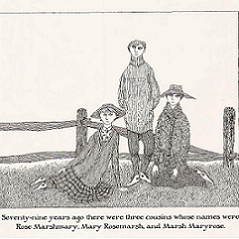
Joined: May 28 2011
Location: NH
Status: Offline
Points: 344
|
 Posted: December 27 2012 at 00:44 Posted: December 27 2012 at 00:44 |
I'm glad this thread was made, and good timing too! I've written about an album's worth of material over the last year and I'm just starting to record some of it. It is largely instrumental, but there are some vocal-heavy sections and some songs with light vocals is between. I haven't written any lyrics yet but now I'm trying to get some inspiration for the lyrics. I do have some inspiration on the subjects - a few important things to me that tie together in many ways. I also have a vague idea in mind of how I want to present the lyrics but I've often had difficulty getting lyrics started. I've been thinking maybe an allegorical story would be a great way to present it because on the surface, it can tell a fantastical tale with maybe a sense of ambiguity as to what the meaning is, but the meaning is there and potentially decipherable. That sounds ideal to me. But how do I do it? Music comes to me in a fairly fluid way, but I don't know if I fully understand the process of writing poetry.
I have the music which, like Moshkito was saying, might be all that needs to be there, but I still love the idea of making an album into one dense piece of art by mixing many mediums. It's music and music first, and I expect that the listener will first hear music. But I think it would be great for the music to first sink in, and then for the listener to dig in further, to take as much from it as I can make. I think that is what I would try to do when listening to prog concept albums. Does anyone have any experience doing something like this or related to this? Any advice? Of course, you probably can't teach everything about it because so much of it comes from artistic creativity, but is there a good way to go about starting this, maybe a way to prepare or map it out first?
|
|
|
 |
prog4evr 
Forum Senior Member

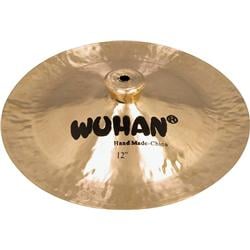
Joined: September 22 2005
Location: Wuhan, China
Status: Offline
Points: 1455
|
 Posted: December 27 2012 at 00:56 Posted: December 27 2012 at 00:56 |
|
I think it is not mutually exclusive - rather, it can be a both/and situation. For example, Gates of Delirium (Yes-Relayer) tells the story both by the lyrics AND the long(er) instrumental passages. For me, this is unique in Prog, and one of the main reasons why I am drawn to Prog pieces in the first place...
Edited by prog4evr - December 27 2012 at 00:56
|
 |
HackettFan 
Forum Senior Member


Joined: June 20 2012
Location: Oklahoma
Status: Offline
Points: 7946
|
 Posted: December 27 2012 at 01:36 Posted: December 27 2012 at 01:36 |
 Wafflesyrup wrote: Wafflesyrup wrote:
 HackettFan wrote: HackettFan wrote:
I don't want to go as broad as Wafflesyrup suggested and say that all music inherently tells a story. This dilutes the point of the thread. I share your disdain for the contemporary notion that the lyrics can "take us there" while the music supposedly cannot. I definitely think there are some works that allow you to see a story in your mind's eye. (I'm talking about impressions not hallucinations here, just to head off any confusion). |
I guess my statement on varying degrees of storytelling through music didn't really quite make the point. I myself have a much larger appreciation for music which traverses a multitude of emotional impressions rhythmically and harmonically, as opposed to maintaining a static groove and harmony. I thought the child book, novel, magazine analogy to be fairly apt in the discussion. Whoops, messed up the quote box. 
|
I fixed the quote up, but managed to lose the philosophically involved post I wrote (probably no great loss to anyone but me). So, let's try an abridged version. Your analogy was quite apt. I especially liked the part about Hustler magazine. I just want to make sure for the purpose of the thread that we're able to distinguish between music that is steeped in storytelling versus that which is not. You are, I'm sure, quite right about there being varying degrees of storytelling. I think actually that some music does not do so at all, but as long as a contrast can be drawn I'm not so concerned with whether it's absolute or a matter of degree.
Edited by HackettFan - December 27 2012 at 01:47
|
 |
HackettFan 
Forum Senior Member


Joined: June 20 2012
Location: Oklahoma
Status: Offline
Points: 7946
|
 Posted: December 27 2012 at 14:16 Posted: December 27 2012 at 14:16 |
|
I find that for some artists the only thing my enters my mind's eye when they're playing are mental images of them playing. This is not a bad thing necessarily. One of my all time favorite albums is Shut Up N' Play Yer Guitar, but all I think about is Zappa and his unceasing concentration on the fretboard. I don't think there're meant to be any stories there. I get something similar with Keith Emerson. Wizards at work expressing themselves, but no storyworld. I think of this as musical expressionism. Then there are musicians like Steve Hackett. You're not even sure when they're playing, if you're hearing a guitar or a keyboard. Rather than their playing being the focus of attention they add coloring to the content, which is in some cases a full blown storyworld. I think of this as a sort of musical Impressionism.
|
 |
Ambient Hurricanes 
Forum Senior Member


Joined: December 25 2011
Location: internet
Status: Offline
Points: 2549
|
 Posted: December 27 2012 at 15:49 Posted: December 27 2012 at 15:49 |
 Polymorphia wrote: Polymorphia wrote:
 HackettFan wrote: HackettFan wrote:
 Polymorphia wrote: Polymorphia wrote:
Most prog is heavily influenced by the Romantic composers whose music strongly communicated a passing of time. Many prog artists combine actual storytelling with this aesthetic effect, which may cause one to associate the psychological time aspect with the folklore or image of an artist. Take Yes as an example. "Close to the Edge" conveys a passage of time and change of setting, yet the lyrics are abstract and introspective leading the listener to conclude the song is about a big personal change. "Close to the Edge" refers to being close to a huge "self-discovery," as Jon Anderson puts it.Or take an example of the opposite. Classical composer Olivier Messiaen wrote music that "suspended" psychological time, so to speak. His works were mainly religious and the suspension of psychological time was used to communicate eternity. Almost all of his music was this way. |
This is really a good point. Some of the classical influences that some classical Prog musicians had could be at the heart of their interest in storytelling. It's nice to be able to connect the dots like this. For myself, I'm a very casual listener of classical music. I don't know much about one period versus another. Maybe I'll pay better attention now. Is modern Prog influenced in the same way by Romantic composers? Or are they influenced just by earlier classic Prog itself? Have they brought any storytelling sensibility into the fray, or has that fallen by the wayside? |
Not sure about much modern symph or neo. Haven't listened enough to either to make a conclusion. Most of the artists in modern prog I have listened to extensively don't usually contain those aspects. Radiohead, who are avid fans of Messiaen, notably tend to follow his tendencies with the suspension of psychological time, particularly with Kid A and King of Limbs. The Mars Volta have a slight story telling element, but its not as present as in Yes' or Genesis' music. Usually, the "jammier" bands like TMV, Pink Floyd, and Can, are this way.
|
I think TMV actually has a very strong narrative element in their music (even in works that aren't technically "concept albums," like Octahedron). The stories just sometimes get lost because the lyrics are so incomprehensible. The Bedlam In Goliath, for example, is a complex story which chronicles the band's encounter with the occult while also serving as a metaphor for the oppression of women in the Middle East. But the lyrics make so little sense that it hurts your head just to read them!
|
|
I love dogs, I've always loved dogs
|
 |
/PAlogo_v2.gif)


